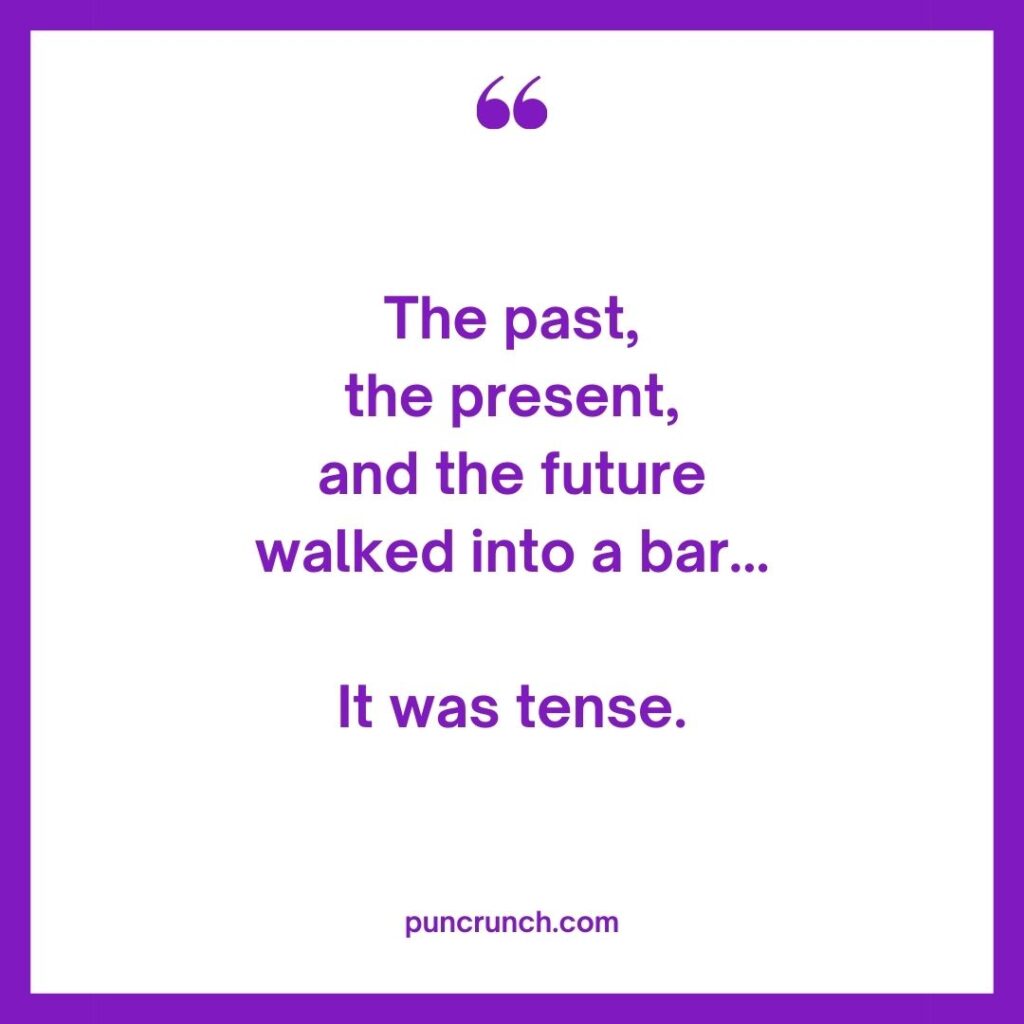Witty and Hilarious Puns from Around the World (American, British, Spanish, French, Japanese, Chinese & Indian)

Puns are a global phenomenon as they are beloved by people from all corners of the Earth.
They transcend languages, cultures, and even time to provide humor and wit across all cultures.
From the bustling streets of New York to the serene temples of Japan, puns have found a place in everyday conversation, literature, advertising, and entertainment.
In this blog post, we’ve shared some of the most witty and hilarious puns from American, British, Spanish, French, Japanese, Chinese & Indian cultures. So, let’s dive in…
American Puns: A Melting Pot of Humor
Example 1: “I’m reading a book on anti-gravity. It’s impossible to put down.”
This classic pun is a staple in American humor.
It plays on the double meaning of “put down” – referring both to setting something aside and to the concept of gravity. The clever twist makes it a favorite in joke books and everyday conversation.
Example 2: “Time flies like an arrow; fruit flies like a banana.”
This pun is particularly famous for its linguistic complexity. The phrase “time flies like an arrow” uses “flies” as a verb and “like” as a preposition.
In contrast, “fruit flies like a banana” uses “flies” as a noun (insects) and “like” as a verb. The unexpected shift in meaning creates a humorous and thought-provoking statement.
Example 3: “A bicycle can’t stand on its own because it’s two-tired.”

This pun combines a homophonic play on “two-tired” (sounding like “too tired”) with a witty observation about the nature of bicycles.
It’s a simple yet effective example of how puns can make us see everyday objects in a new light.
British Puns: A Tradition of Wit
Example 1: “I used to be a baker, but I couldn’t make enough dough.”
British humor often relies on wordplay and dry wit, and this pun is no exception.
“Dough” here refers both to the mixture used to make bread and to money, creating a clever connection between baking and finances.
Example 2: “A boiled egg in the morning is hard to beat.”
This pun plays on the double meaning of “beat” – to whisk or mix and to surpass. It’s a perfect example of British humor’s love for clever wordplay and double entendres.
Example 3: “The past, the present, and the future walked into a bar. It was tense.”

This pun is a play on words involving grammatical tenses.
The joke lies in the word “tense,” which can mean both a state of nervousness and a grammatical term for time. It’s a witty example of how language can be twisted to create humor.
More Fun Puns: Puns in Advertising & Marketing (With Examples)
Japanese Puns: The Art of Wordplay
Example 1: “Natto wake ga nai” (納豆訳がない)
In Japanese, “natto” is a type of fermented soybean, and “wake ga nai” means “it doesn’t make sense.”
Combined, they make a pun that sounds like “Natto doesn’t make sense.” This play on words is a delightful example of how puns can incorporate cultural elements.
Example 2: “Mikan nai” (未完ない)
“Mikan” means tangerine, and “mikan nai” sounds like “there is no incompleteness.”
This pun cleverly uses the double meaning to create a humorous statement about both fruit and perfection.
Example 3: “Shirushi no nai mirai” (印のない未来)
“Shirushi” means mark or sign, and “mirai” means future. The phrase “shirushi no nai mirai” can be interpreted as “a future with no sign” or “a future without lemons” (since “lemon” can be another meaning for “shirushi”). This pun showcases the Japanese love for nuanced and layered wordplay.
French Puns: The Elegance of Language
Example 1: “Pourquoi les plongeurs plongent-ils toujours en arrière et jamais en avant? Parce que sinon ils tombent encore dans le bateau.”
This pun translates to “Why do divers always dive backward and never forward? Because otherwise, they fall back into the boat.”
It’s a clever play on the concept of direction and movement, using humor to highlight an amusing observation about diving.
Example 2: “Il n’y a pas de fumée sans feu.”
This phrase means “There’s no smoke without fire,” but in French, “fumée” (smoke) can also be slang for nonsense.
The pun lies in the double meaning, creating a humorous statement about gossip or rumors.
Example 3: “Je suis un peu fatigué, je vais me coucher.”
This translates to “I’m a little tired, I’m going to lie down,” but “me coucher” can also mean “to go to bed.”
The pun plays on the double meaning, adding a touch of humor to a simple statement about rest.
Spanish Puns: Vibrant and Playful
Example 1: “¿Qué hace una abeja en el gimnasio? ¡Zum-ba!”
This pun translates to “What does a bee do in the gym? Zumba!”
The word “zumba” mimics the sound a bee makes (“zum”) and refers to the popular dance workout, creating a playful and witty pun.
Example 2: “¿Qué hace un pez? Nada.”
This pun means “What does a fish do? Nothing.” But “nada” also means “swims” in Spanish. The double meaning creates a humorous twist on the simple question.
Example 3: “Estoy leyendo un libro sobre anti-gravedad. Es imposible de dejar.”
This is the Spanish version of the anti-gravity book pun: “I’m reading a book on anti-gravity. It’s impossible to put down.”
It’s a great example of how puns can cross linguistic boundaries while retaining their humor.
Chinese Puns: Cultural and Clever
Example 1: “我一见钟情。”
This translates to “I fell in love at first sight,” but the characters “钟” (zhōng) and “情” (qíng) can also be interpreted as “clock” and “feeling.”
The pun plays on the double meaning, adding a layer of cleverness to a romantic statement.
Example 2: “春节快乐” (Chūn Jié Kuài Lè)
This means “Happy Spring Festival,” but “节” (jié) can also mean “festival” or “knot.” The pun creates a playful twist on the traditional greeting, suggesting both celebration and unity.
Example 3: “草莓” (cǎo méi)
“草” (cǎo) means “grass,” and “莓” (méi) sounds like “mei,” which means “berry.”
Together, they mean “strawberry,” but the characters can also be interpreted as “grass berry,” creating a whimsical and humorous play on words.
More Fun Puns: History of Puns from 4,000 BCE to The Middle Ages & 21st Century
Indian Puns: Rich and Diverse
Example 1: “Why did the scarecrow win an award? Because he was outstanding in his field.”
This pun is popular in India and plays on the double meaning of “outstanding” – both as an exceptional quality and literally standing out in a field. It’s a clever and witty example of wordplay.
Example 2: “Why don’t scientists trust atoms? Because they make up everything.”
This pun is well-loved in India for its clever twist on scientific terminology.
“Make up” refers both to the composition of matter and to fabrication, creating a humorous and insightful statement.
Example 3: “What do you call fake spaghetti? An impasta.”
This pun plays on the similar sounds of “imposter” and “impasta,” creating a witty and humorous connection between Italian cuisine and deception.
Conclusion
Puns are a delightful and universal form of humor that transcends language and culture.
From the witty streets of London to the vibrant markets of India, puns have a unique ability to bring people together through laughter and clever wordplay.
They are a testament to the creativity and playfulness inherent in human communication.
Whether you’re sharing a laugh with friends, reading a clever advertisement, or enjoying a witty meme, puns are a reminder that humor is a universal language that we all share.
So next time you come across a pun, take a moment to appreciate the wit and creativity behind it.
And who knows, you might find yourself inspired to create a few puns of your own. After all, in the world of puns, the possibilities are endless!






